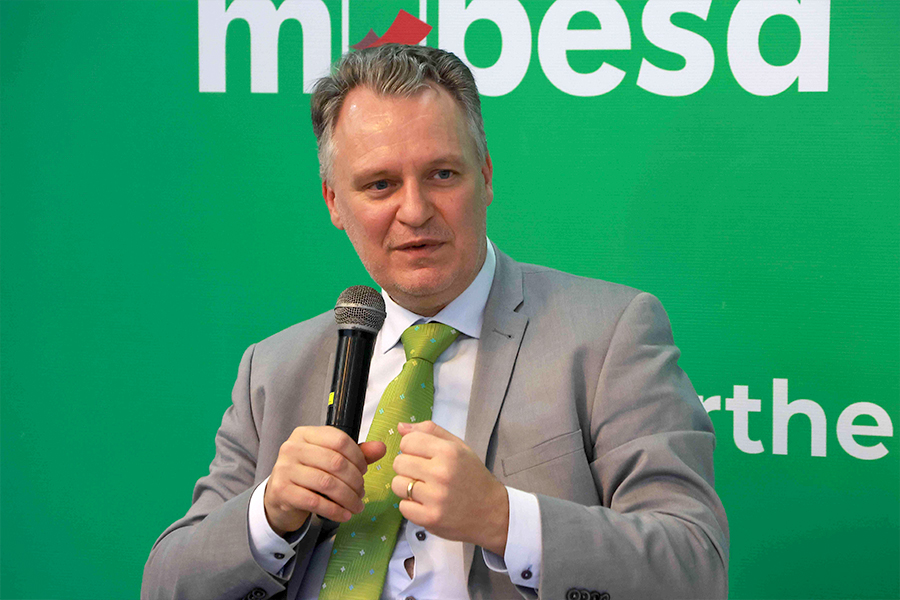
Radar | Jul 13,2020
Mar 2 , 2019
By
Prime Minister Abiy Ahmed’s (PhD) interview with the Financial Times was indicative of the current administration’s goals for the economy. More detail on a strategic economic proposal, one that points away from the current national plan, would be helpful. But it was just as encouraging to hear the Prime Minister declare that he is a capitalist.
The discussion Abiy held last week with heads of government institutions to review initiatives in “Doing Business” was a manifestation of the capitalist beginnings the administration was trying to chart. It was announced at the discussion that preparations are currently underway to allow banks to accept movable assets as collateral, a critically important measure to improve access to credit in a country where the government owns all land.
The series of reforms to relax the foreign exchange regime by the National Bank of Ethiopia is just as impressive. Companies that are located in industrial parks are now allowed to trade in foreign currency among themselves, and foreign currency retention account holders have been allowed to sell forex to commercial banks through negotiations and keep up to 30pc of their earnings.
The latter directive is specifically beneficial to businesses and the economy. By setting a commercial rate for foreign currency exchange between banks and retention account holders, it offers businesses and individuals a chance for better returns in Birr for their dollars. The fact that they are now allowed to keep close to a third of their currency and find better buying rates - which is inevitable given the shortage of foreign currency in the country - would encourage them to keep their transactions in the formal sector.
Of course, there is a long way to go before the private sector can be regenerated. From the Dergue’s nationalisation to the EPRDF’s tepid attempts to see the sector flourish, there is currently a trauma that is both institutional and cultural.
It has become common to regard the business class as entitled, greedy and irresponsible. The two regimes have governed by either implying or outright condemnation of private enterprise as the source of inequality, oligarchy and artificially high cost of living. Using such an excuse, the state was able to justify its involvement in sectors such as aviation and telecom.
Abiy’s proud declaration that he is a capitalist thus does not only come at a time when it is most needed but can ring the loudest. It can appeal to a young generation that never lived through a famine.
Of course, there are unfortunately still many that dream of three meals a day, but most hope for far better. The bare minimum of public goods a government can provide, such as security and primary education, is not enough anymore.
Citizens now desire a far better standard of living - better skincare products, eating at an expensive restaurant two or three times a week, a nice car and a comfortable home or two. They want the whole ten yards - as they have seen on Tv and heard about it on social media - the modern conception material well-being entails.
Under a capitalist system, such aspirations will either fuel development or cripple it by instigating social instability. It is notable that Abiy never said which sort of capitalism he endorses, but the sort of free-market economic system that the United States is currently following is not advisable.
Even if the transition to a market-led economy is made smooth, the incumbents should realise that the reorientation should be towards a social market economy. This would be complicated given that as the government relinquishes more control in the economy, it would in the short- to medium-term lose revenue necessary to institute a strong social welfare system. However, it would remain the only, albeit tasking, the path toward a more prosperous country.
There should be no illusions of the sort of class system any capitalist economy will create. This is inevitable, but his administration should charter the path towards economic and political institutions that can guarantee any person with the right talent and hard work can grow, prosper and catch up.
We can call it the “Ethiopian Dream,” and it is a dream that a market-led economic system in a nation where the state looks after the interests of its citizens can guarantee.
PUBLISHED ON
Mar 02,2019 [ VOL
19 , NO
983]

Radar | Jul 13,2020

Exclusive Interviews | Jan 05,2020

Radar | Sep 08,2019

Radar | May 18,2024

Radar | Oct 17,2020

Radar | Jun 19,2021

Fortune News | Nov 03,2024

Fortune News | Nov 18,2023

Radar | May 23,2020

Radar | Jan 29,2022

My Opinion | 131970 Views | Aug 14,2021

My Opinion | 128359 Views | Aug 21,2021

My Opinion | 126297 Views | Sep 10,2021

My Opinion | 123913 Views | Aug 07,2021

Dec 22 , 2024 . By TIZITA SHEWAFERAW
Charged with transforming colossal state-owned enterprises into modern and competitiv...

Aug 18 , 2024 . By AKSAH ITALO
Although predictable Yonas Zerihun's job in the ride-hailing service is not immune to...

Jul 28 , 2024 . By TIZITA SHEWAFERAW
Unhabitual, perhaps too many, Samuel Gebreyohannes, 38, used to occasionally enjoy a couple of beers at breakfast. However, he recently swit...

Jul 13 , 2024 . By AKSAH ITALO
Investors who rely on tractors, trucks, and field vehicles for commuting, transporting commodities, and f...

Jul 5 , 2025
Six years ago, Ethiopia was the darling of international liberal commentators. A year...

Jun 28 , 2025
Meseret Damtie, the assertive auditor general, has never been shy about naming names...

Jun 21 , 2025
A well-worn adage says, “Budget is not destiny, but it is direction.” Examining t...

Jun 14 , 2025
Yet again, the Horn of Africa is bracing for trouble. A region already frayed by wars...

Jul 6 , 2025 . By BEZAWIT HULUAGER
The federal legislature gave Prime Minister Abiy Ahmed (PhD) what he wanted: a 1.9 tr...

Jul 6 , 2025 . By YITBAREK GETACHEW
In a city rising skyward at breakneck speed, a reckoning has arrived. Authorities in...

Jul 6 , 2025 . By NAHOM AYELE
A landmark directive from the Ministry of Finance signals a paradigm shift in the cou...

Jul 6 , 2025 . By NAHOM AYELE
Awash Bank has announced plans to establish a dedicated investment banking subsidiary...